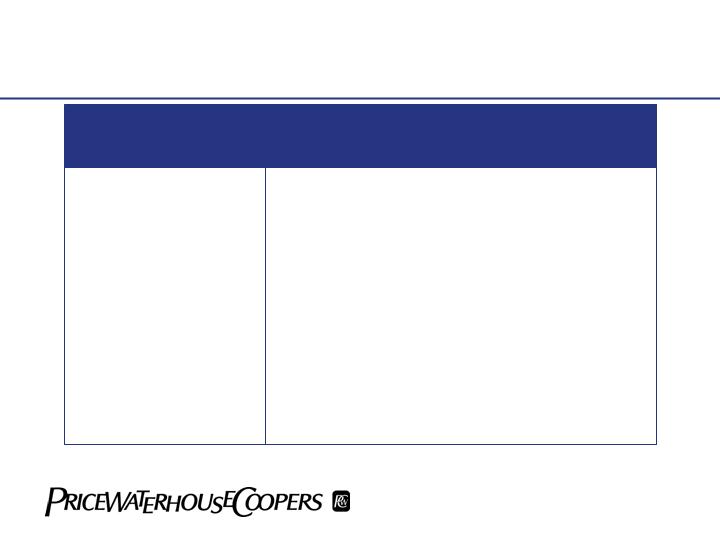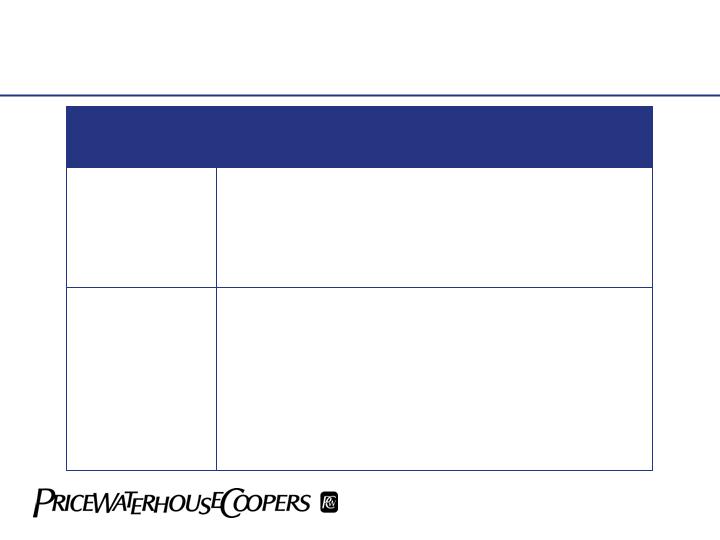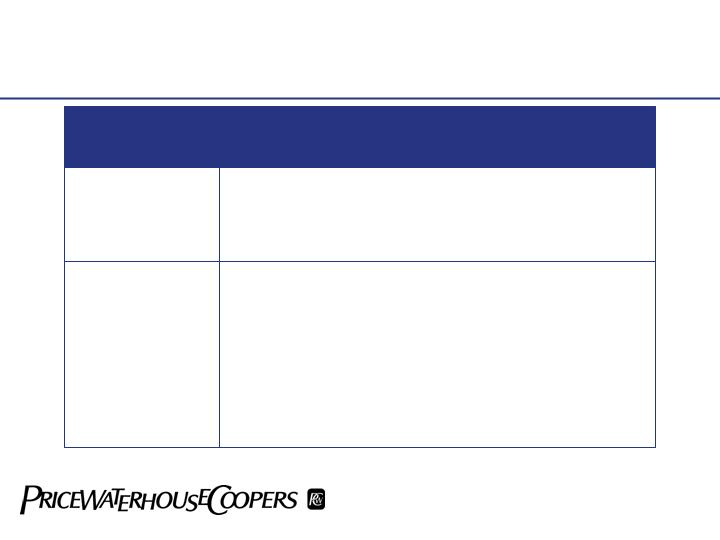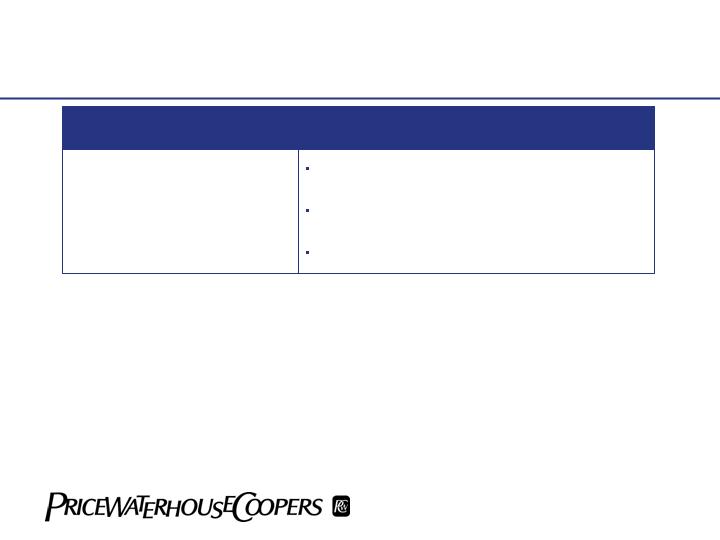March 23, 2007
Dear Sirs,
| Re: | Audit
letter in relation to the audit of the accounts of Global Energy Inc. (hereafter – the Company) for the year ended December 31, 2007 |
Having completed our audit of the financial statements for the year ended December 31, 2007, we hereby present to you our comments concerning the internal control system, and our recommendations for its improvement.
Our examination of the accounting records and their supporting documentation was carried out using methods and to the extent that we deemed appropriate in order to dispatch this letter on the audit of the financial statements. By their nature, such methods are not intended to reveal all deficiencies in the internal control system or other irregularities, if such exist.
Since the comments and findings included with this letter arose as a by-product of our audit of the financial statements, aspects pertaining to our recommendations, e.g. cost-benefit analysis etc., have not been fully considered; these considerations are the responsibility of the company’s management. Thus, we recognize that, following their full consideration, it may not be practicable to implement some of our proposals and recommendations. In view of their nature, our comments have been limited to noting deficiencies and suggesting improvements to procedures, and do not relate to the positive aspects of the working procedures.
We wish to thank all the people with whom we have been in contact during the audit for their cooperation and assistance.
We would be glad to assist you with any further explanations that may be required.
Yours sincerely,
Kesselman & Kesselman
Certified
Public Accountants
cc:
| 1. | Material required for audit purposes, and the planned timetable |
| As part of the procedures with respect to the audit of the financial statements, we sent the Company a list of the documents we required for the purposes of our audit. Not all the documentation required by us had been prepared in accordance with the pre-arranged timetable, a matter which occasioned delays to our own audit timetable. We would mention that the timetable for the completion of the audit this year was extremely tight, and the fact that some of the material required was not readily available adversely affected the flow of our audit procedures. |
| 2. | Controls over the company’s financial records and bookkeeping |
| After performing the 2007 year end audit, PwC noted the following deficiencies concerning controls over the company’s financial records and bookkeeping: |
| a. | PwC noted that the following journal entries that were booked in the financial records were not accurate: |
| i. | The accrual for Irit Arbel in the amount of 67K NIS was booked in the trail balance which is in USD. |
| ii. | The year end bank balance was not reconciled to the bank statement. |
| iii. | There are two accounts to the same vendor, one debit and one credit. |
| b. | PwC noted the following deficiencies concerning salary: |
| i. | The balances of vacation days usually presented on the monthly pay slip, for Asi Shalgi and Moshe Zagori the total balance presented was matched the actual. |
| ii. | Niv Carmi that was terminated in December 2007, received salary for January 2008. |
| iii. | Employee that worked only one month during 2007 received his salary over several months that might cause a mistake in the tax calculation. |
| c. | Account balances in the bookkeeping are not organized in a numerical order and it is very difficult to trace journal entries. |
| Our recommendations: |
| — | The company’s bookkeeping must be conducted under strict supervision by the CFO and to establish strict internal control procedures in order to monitor both the bookkeeping and the salary system. |
| — | To update periodically the finance department regarding any changes that can affect the bookkeeping. |
| — | The bookkeeper is working only in the financial department should work full time, and his responsibilities should expand and defined. |
| — | To rearranged the bookkeeping accounts by identified groups and by using account numbers. |
| 3. | Controls procedures regarding management of petty cash and cash in hand |
| Petty cash and cash in hand – is being held by the company’s employees (Asi, Yannai and Tina), and was not counted at 31.12.07. |
| Our recommendations: |
| Although these amounts are immaterial we recommend to perform the counting and to match it the books. |
| 4. | The filling of S-1 on 4/3/08 |
| PwC reviewed the draft of S-1 before the filing in the SEC reporting system; the focus was on the accuracy and the consistency of the financial information compare to other financial reports that were filed in the past. PwC noted that the following items were not accurate: |
| — | The draft did not include fees earned or paid in cash for Directors in 2007. |
| — | The amendment to the CFO contract was not included in the draft and in addition the Company did not file 8-K when the amendment was signed. |
| Implications: |
| All filings to the public must be accurate and include the information required under SEC rules. |
| Our recommendations: |
| The report must be prepared and reviewed by different persons, in case the Company’s legal counsel is preparing this report, the reviewer – usually the CFO – must review and agree all the reported information closely by comparing it to the reported information in prior filings and to new information available. |
| The Company agreed with these comments and corrected the S-1. |
| 5. | Draft of Financial Statements |
| The draft of the financial statements received from the Company was missing two key notes: Convertible debentures and warrants, Minority interest also noted that the following notes did not contain the disclosures that are required according to US GAAP: note 1 “Significant accounting policies”, Note 11 “Net loss per share”, our recommendation is to invest additional effort in the preparation of the financial statements according to US GAAP. |

Global Energy Inc.
Audit Committee Report
for the year ended December 31, 2008

Our responsibility is to express an opinion on the
Company’s consolidated financial statements. We
conducted our audits in accordance with the standards
of the Public Company Accounting Oversight Board
(PCAOB). Those standards require that we plan and
perform the audits to obtain reasonable rather than
absolute assurance about whether the financial
statements are free of material
misstatement, whether
caused by error or fraud. Accordingly, a material
misstatement may remain undetected. An audit is not
designed to detect error or fraud that is immaterial
to the
financial statements.
Auditor’s responsibility under
Generally Accepted Auditing
Standards
Our response
Matter to be communicated
Global Energy Inc.
Required communications to the audit committee
For year ended December 31, 2008

We are responsible for ensuring that the Audit Committee
is informed of the initial selection of and changes in
significant accounting
policies or their application. We are
also responsible
for informing the Audit Committee of
significant unusual transactions and the effect of
significant policies in controversial or emerging areas for
which there is a lack of authoritative
guidance or
consensus.
Significant accounting
policies, including critical
accounting policies and
alternative treatments within
generally accepted
accounting principles and
the auditor’s
judgement
about the quality of
accounting principles
Our response
Matter to be
communicated
Global Energy Inc.
Required communications to the audit committee
For year ended December 31, 2008

.
The Company’s significant accounting policies are
summarized
in Note 1 to the Company’s 2008 consolidated
financial statements draft. We have summarized below the
selected significant accounting policies:
1.
The consolidated financial statements include the accounts
of the Company and its subsidiaries, and the accounts of
the 50% owned entity which according to FIN 46R is
a
variable interest entity and the Company is the primary
beneficiary. Intercompany balances and transactions have
been eliminated upon consolidation.
Significant accounting
policies, including critical
accounting policies and
alternative treatments
within generally accepted
accounting principles and
the auditor’s
judgement
about the quality of
accounting principles
Our response
Matter to be
communicated
Global Energy Inc.
Required communications to the audit committee
For year ended December 31, 2008

2.
The Company has adopted FAS 133, as amended, which
establishes accounting and reporting standards for
derivatives, including certain derivatives embedded in other
contracts, and for
hedging activities. Under FAS 133, all
derivatives are recognized on the balance sheet at their fair
value. On the date that the Company enters into a derivative
contract, it designates the derivative, for accounting
purposes, as: (1) hedging
instrument, or (2) non-hedging
instrument. Any changes in fair value are to be reflected as
current gains or losses or other comprehensive gains or
losses, depending upon whether the derivative is designated
as a hedge and what type of hedging
relationship exists.
Changes in fair value of
Significant accounting
policies, including critical
accounting policies and
alternative treatments
within generally
accepted accounting
principles and the
auditor’s judgement
about the
quality of
accounting principles
Our response
Matter to be
communicated
Global Energy Inc.
Required communications to the audit committee
For year ended December 31, 2008

non-hedging instruments are carried to “financial expenses-
net” on a current basis. To date, the Company did not have
any
contracts that qualify for hedge accounting under FAS
133.
The Company entered into convertible debentures agreement in
which a derivative instrument is “embedded”. Embedded
derivative is separated
from the host contract and carried at
fair value when (1) the embedded derivative possesses
economic characteristics that are not clearly and closely
related to the economic characteristics of the host contract
and (2) a separate, stand-alone instrument with the same
terms would qualify as a derivative instrument.
Significant accounting
policies, including
critical accounting
policies and alternative
treatments within
generally accepted
accounting principles
and the auditor’s
judgement about the
quality of accounting
principles
Our response
Matter to be
communicated
Global Energy Inc.
Required communications to the audit committee
For year ended December 31, 2008

3.
The Company implements Statement of Financial Accounting
Standards No. 123 (revised 2004) “Share-based Payment”
(“FAS 123(R)”). FAS 123(R) requires
awards classified as
equity awards be accounted for using the grant-date fair value
method. The fair value of share-based payment transactions is
recognized as expense over the requisite service period, net of
estimated forfeitures. The Company
recognizes compensation
cost for an award with only service conditions that has a
graded
vesting schedule using the accelerated method based on
multiple options awarded approach.
Significant accounting
policies, including
critical accounting
policies and alternative
treatments within
generally accepted
accounting principles
and the auditor’s
judgement about the
quality of accounting
principles
Our response
Matter to be
communicated
Global Energy Inc.
Required communications to the audit committee
For year ended December 31, 2008

The Company accounts for equity instruments issued to third
party service providers (non-employees) in accordance with
the fair value based on an option-pricing
model, pursuant to
the guidance in EITF 96-18 “Accounting for Equity Instruments
That Are Issued to Other Than Employees for Acquiring, or in
Conjunction with Selling Goods or Services”. The fair value of
the options granted is revalued
over the related service
periods and recognized over the vesting period
Significant accounting
policies, including
critical accounting
policies and alternative
treatments within
generally accepted
accounting principles
and the auditor’s
judgement about the
quality of accounting
principles
Our response
Matter to be
communicated
Global Energy Inc.
Required communications to the audit committee
For year ended December 31, 2008

The preparation of the financial statements in
conformity with generally accepted accounting
principles ("GAAP"), requires management to make
estimates and assumptions
that affect the reported
amounts of assets and liabilities and disclosure of
contingent assets and liabilities at the dates of the
financial statements and the reported amounts of
revenues and expenses during the reporting years.
Those estimates
are normally based on management
knowledge and experience about past and current
events and on assumption on future events. Actual
results could differ from those estimates.
Management judgments and
accounting estimates
Our response
Matter to be communicated
Global Energy Inc.
Required communications to the audit committee
For year ended
December 31, 2008

There were audit adjustments arising from the audit preformed. For the
list of audit adjustments refer to appendix A. All adjustments above
determined materiality level
were booked in the financial statements .
Audit adjustments
There were no disagreements with management concerning the
Company's consolidated financial statements or our report.
Disagreements
with management
Our response
Matter to be
communicated
Global Energy Inc.
Required communications to the audit committee
For year ended December 31, 2008

The Company has net losses for the period from inception (January 5,
2005) through December 31, 2008 of approximately $6.6 millions, as
well as negative cash flow from
operating activities. Presently, the
company does not have sufficient cash resources to meet its
requirements in the twelve months following January 1, 2009. These
factors raise substantial doubt about the company's ability to continue
as a
going concern. Accordingly, we have included an explanatory
paragraph (following the opinion paragraph)
in our audit report to
reflect our conclusion. Management anticipates to be able to finance
the Company's future activities through fund raising in the
public or
private equity markets.
Material
uncertainties
related to events
and conditions,
specifically going
concern issues
Our response
Matter to be
communicated
Global Energy Inc.
Required communications to the audit committee
For year ended
December 31, 2008

Management has advised us that it has not relied on
consultations with other accounting firms regarding any
significant accounting matters in the year 2008.
Consultation with other
accountants
In our judgment, we received the full cooperation of the
Company’s management and had unrestricted access to
information needed in performing our audit.
Difficulties encountered in
performing the audit
No significant issues were discussed, or subject to
correspondence with management prior to retention
except for our request from management to improve the
internal
control over financial reproting. Management
hired a Certified Public Accountant for this purpose.
Major issues discussed with
management prior to
retention
Our response
Matter to be
communicated
Global Energy Inc.
Required communications to the audit committee
For year ended December 31, 2008

In planning and performing our audit, we considered the
Company’s internal control in order to determine our
auditing procedures for the purpose of expressing our
opinion on the financial statements and not to provide
assurance on internal control.
The issues identified will be sent to the audit committee
separately.
Deficiencies in internal control
Our response
Matter to be
communicated
Global Energy Inc.
Required communications to the audit committee
For year ended December 31, 2008

Our responsibility with respect to other information in
documents containing audited financial statements is to read
the information and consider whether the information
or the
manner of its presentation is materially inconsistent with
information appearing in the basic financial statements.
We have reviewed the Company’s registration form 10-K.
Based on our reading, we noted no instances of inconsistent
content
or presentation or material misstatement of fact.
Other information in
documents containing
audited financial information
We are not aware of any significant risks or exposures that
could materially affect the consolidated financial statements,
which are not disclosed in the financial statements.
Potential effect on the
financial statements
of any significant risks and
exposures
Our response
Matter to be
communicated
Global Energy Inc.
Required communications to the audit committee
For year ended December 31, 2008

We issued our PCAOB Rule 3526 letter to the Audit Committee
on February 24, 2009. We are not aware of any relationships
between our Firm and the Company that,
in our professional
judgment, may reasonably be thought to bear on our
independence which have occurred since February 24, 2009,
the date of our previous communication provided to the Audit
Committee.
Independence
No irregularities, fraud or illegal acts involving senior
management, or that would cause a material misstatement of
the consolidated financial statements, came to our
attention as
a result of our auditing procedures.
Fraud and illegal acts
Our response
Matter to be
communicated
Global Energy Inc.
Required communications to the audit committee
For year ended December 31, 2008

Global Energy Inc.
Required communications to the audit committee
For year ended December 31, 2008
We confirm our understanding that, in carrying out the various
phases of our audit we are acting on the appointment of the
Audit Committee of the Company. We reaffirm
our awareness
of our responsibility to call to the attention of the Audit
Committee, any accounting, auditing, internal control or other
related matters that we believe warrant consideration
or action.
Access to the Audit
Committee
Company’s management is informed of the timetable.
The Company started a SOX compliance project. We are
unaware if the project was continued.
Implementation of the
Sarbanes-Oxley act.
Our response
Matter to be
communicated

Management representation letter
Engagement letter
Independence letter
Other material written
communications
Our response
Matter to be communicated
Global Energy Inc.
Required communications to the audit committee
For year ended
December 31, 2008
| Independence | ||
| PCAOB Rule 3526, “Communication with Audit Committees Concerning Independence”, requires that, at least annually, the auditor: | ||
| — | disclose to the audit committee in writing, all relationships between the auditor and the Company that, in the auditor’s professional judgment, may reasonable be thought to bear on the auditor’s independence | |
| — | confirm, in his professional judgment, that the firm's independent is in compliance with Rule 3520, Auditor Independence | |
| — | Discuss the auditor's independence with the audit committee | |
| 18 | ||
| Independence | |
| Prohibited non-audit services | |
| — | Bookkeeping or other services related to the accounting records or financial statements. |
| — | Financial information systems design and implementation. |
| — | Appraisal or valuation services, fairness opinions, or contribution-in-kind reports. |
| — | Actuarial advisory services. |
| — | Internal audit outsourcing services that relate to the audit client’s internal accounting controls. |
| — | Management functions, Human Resource services, Legal services. |
| — | Custody of assets, Broker or dealer, investment adviser, or investment banking services. |
| 19 | |
| Independence | |
| Prohibited non-audit services (Continued) | |
| — | Expert services unrelated to the audit. |
| — | Employment of ex-PwC partners and staff. |
| — | Proprietary tax schemes. |
| — | Contingent fees. |
| 20 | |
| Fee summary | |
| Fees | |
| — | Based on the 2008 Engagement Letter that relates to 2008 annual report and interim reports for the periods ended on March 31, June 30 and September 30, 2008, the estimated Audit Fee is $75,000. |
| 21 | |
Global Energy Inc.
Adjustments to close the books at Dec 31, 2008
All data in US dollars
| Accounts | ||||||
|---|---|---|---|---|---|---|
| Reason for adjustment | Debit | Credit | Amount | Impact on Pre-Tax net loss | Does the entry relate to prior periods | Explanation of timing |
| Classification | Minority Interest shareholders | Minority Interest | 18,000 | 0 | No | This is only to correct the presentation at the balance sheet date |
| Conversion of debentures | Debentures convertible into shares | Equity | 25,000 | 0 | No | Conversion occurred in Q4 2008 |
| Implementation of SFAS No. 133 - by an independent expert | Financial expenses | Debentures convertible into shares | 1,516,000 | 1,516,000 | No | Adjustment to fair value at Dec 31, 2008 based on an expert calculation |
| Exchange rate related to revaluation of a short term deposit. | Financial expenses | Short term deposits | 1,722 | 1,722 | No | Adjustment of ending balance per exchange rate at Dec 31, 2008 |
| Updating the provision for audit expenses for Q4 2009 | Audit expenses | Accrued Expenses | 59,000 | 59,000 | No | Adjustment of accrued audit expense for Dec 31, 2008 audit |
| Updating the provision for legal expenses for Q4 2009 | Legal expenses | Accrued Expenses | 22,810 | 22,810 | No | Adjustment of accrued legal for services rendered in Q4 2008 |
| Cancellation of excess provision to an consultant | Accrued Expenses | General and administrative expenses | 14,000 | (14,000) | No | Correction of accrual for services rendered in Q4 2008 |
| Cancellation of excess provision to an consultant | Accrued Expenses | General and administrative expenses | 15,000 | (15,000) | No | Correction of accrual for services rendered in Q4 2008 |
| Updating the accumulated interest of a short term loan. | Financial expenses | Short term loans | 4,500 | 4,500 | No | To record interest for Q4 2008 |
| Share based compensation expenses - correction of Q4 expenses | APIC | Share based compensation expenses | 89,256 | (89,256) | No | Correction of Q4 2008 share compensation |
| 1,485,776 | ||||||
